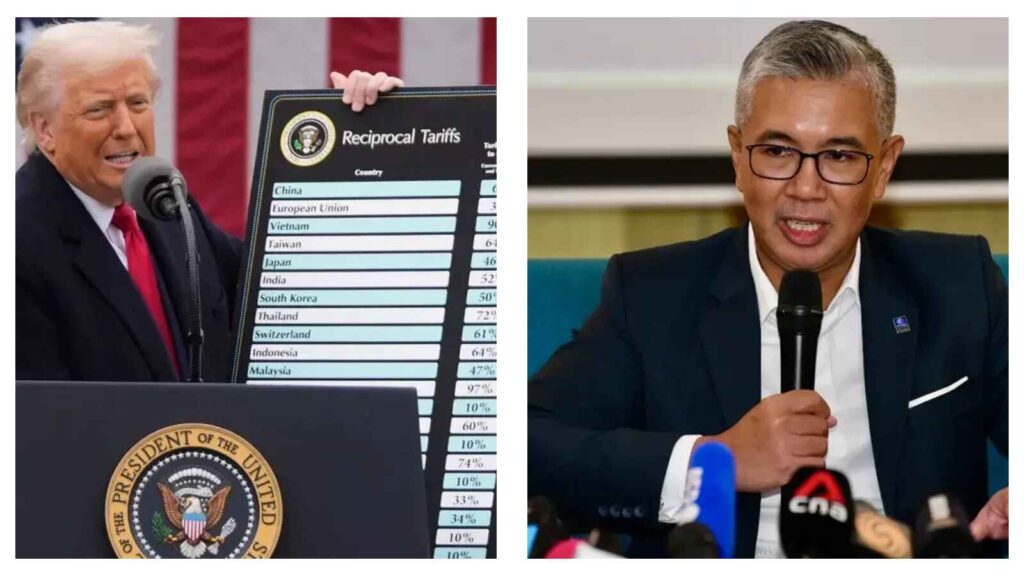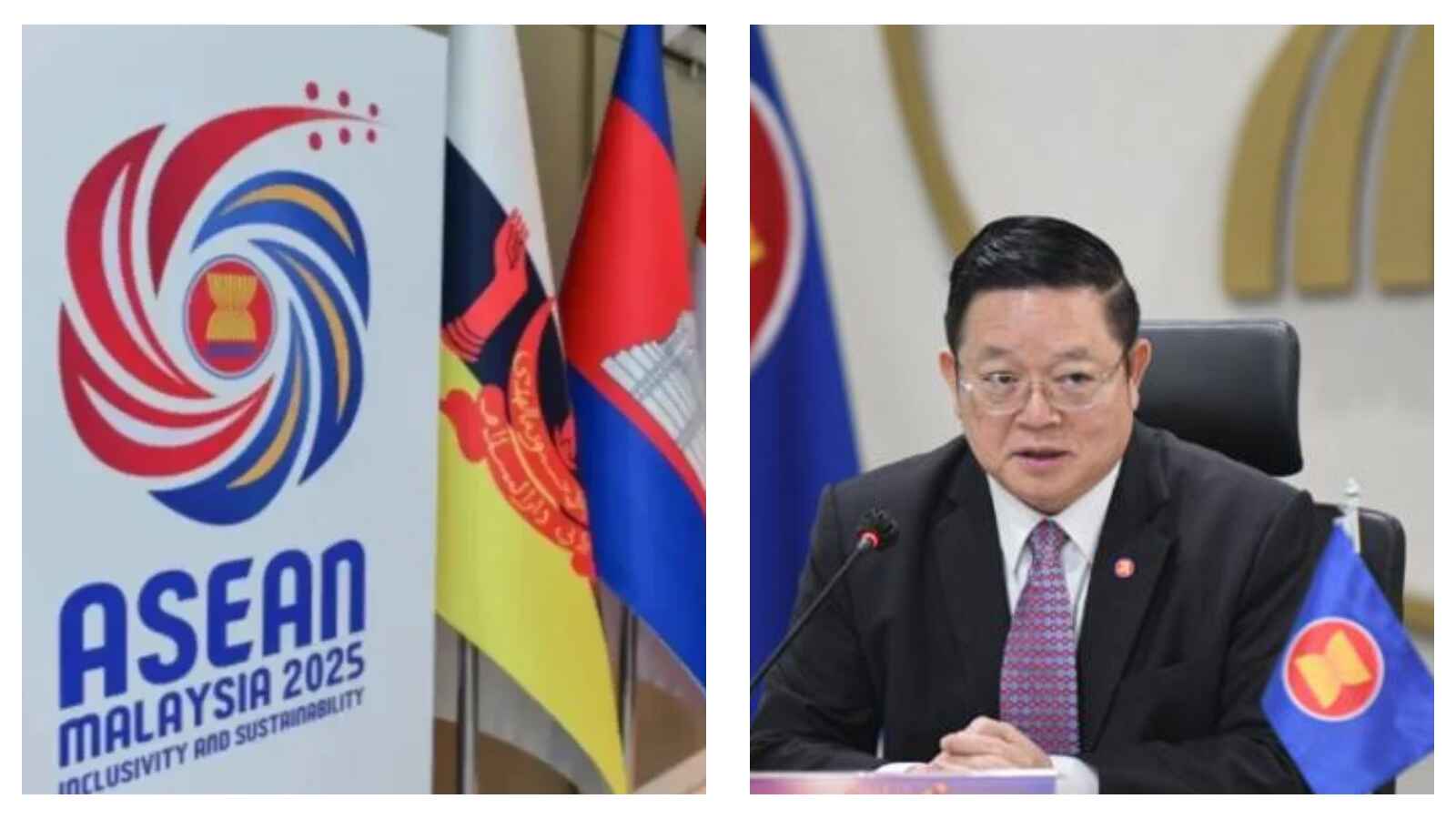By Elan Castañares
Southeast Asia’s top economic officials have condemned sweeping new tariffs imposed by United States President Donald Trump, warning they will severely impact businesses and livelihoods across the region.
But instead of retaliating, the Association of Southeast Asian Nations (ASEAN) has pledged to pursue dialogue and unity as it seeks a collective response to the escalating trade tensions.
Following a three-hour virtual meeting hosted by Malaysia, which holds the ASEAN chair this year, economic ministers from the 10-member bloc issued a joint statement expressing deep concern over the tariffs but committing to “not impose any retaliatory measures.”
“It will also impact economic security and stability, affect the livelihoods of millions of people in the region and hinder economic progress in ASEAN, particularly less developed economies and the long-standing ASEAN-US economic and trade relationship.” the statement read.
Trump’s tariffs rattle the region
The announcement comes in response to a wave of US tariffs unveiled on April 2, targeting countries with significant trade surpluses with the United States.
The move stunned markets and provoked widespread condemnation, especially as the rates fluctuated dramatically in the days that followed, peaking at 49 per cent before settling at a baseline 10 per cent.
The Diplomat said in a report that among the hardest-hit were Cambodia, Laos and Vietnam, while Malaysia, Thailand and Indonesia faced tariffs of 24 per cent, 36 per cent and 32 per cent respectively.
The United States is one of ASEAN’s largest trading partners, with 2023 trade totalling US$396 billion, according to the South China Morning Post.
The White House has argued that the measures are aimed at disrupting hidden Chinese supply chains rerouted through Southeast Asia.
However, analysts and regional leaders say the tariffs are dangerously destabilising and have thrown trade policy into chaos.
“Nothing is certain but uncertainty when it comes to Trump tariffs,” Malaysia’s Trade Minister Tengku Zafrul Abdul Aziz stated.
YOU MAY ALSO LIKE: How will Malaysia deflect the blow of Donald Trump’s US tariffs?

Diplomatic, collective response
Rather than escalating the dispute, ASEAN is adopting what it calls a “frank and constructive” approach to resolving trade tensions.
Nikkei Asia reported that member states will form a task force to coordinate strategy and pursue a strengthened ASEAN-US economic co-operation framework.
Vietnam and Thailand have already begun bilateral negotiations with the US.
Vietnam has offered to slash its own tariffs on American goods to zero, while Thailand plans to increase imports of US agricultural products and aircraft in a bid to ease tensions.
Indonesia, reeling from a sharp stock market drop, is sending a high-level delegation to Washington to seek tariff relief.
Still, analysts warn against fragmented, bilateral approaches.
“ASEAN’s role here, especially the chair, is to play a coordination role to project the member states’ collective strength to the US administration,” said Adib Zalkapli of Viewfinder Global Affairs.
Push for integration, diversification
Former World Trade Organisation chief Supachai Panitchpakdi urged ASEAN to respond by deepening regional integration and accelerating the implementation of frameworks like the Regional Comprehensive Economic Partnership (RCEP).
He cautioned that most ASEAN economies are not in a position to match the US with reciprocal tariffs and must instead bolster internal resilience, according to Nikkei Asia.
ASEAN Secretary-General Kao Kim Hourn echoed the call.
“We must act boldly, decisively and together,” he said, warning that without urgent economic co-operation and diversification, the region could lose relevance in a rapidly fragmenting global economy.
Analysts also see an opportunity to reduce reliance on US trade.
Some member states have begun exploring “US plus one” strategies, expanding trade to new markets in the Global South, European Union and Middle East.
Singapore, Indonesia and Malaysia have already signed new free trade agreements with non-traditional partners.
Stocks rebound after Trump’s U-turn
Markets responded after Trump announced a 90-day pause on the most punishing tariffs, excluding China, on Thursday.
The sudden move sent US markets soaring and triggered a rebound across Asia in early on Thursday trading, according to a report by Agence France-Presse.
Japan’s Nikkei 225 surged 8.3 per cent, South Korea’s Kospi rose over five per cent and Australia’s ASX 200 jumped more than six per cent.
Shares of Japanese auto giant Toyota climbed nearly 10 per cent and Honda rose over eight per cent. Chipmakers also saw strong gains, with Advantest jumping 15 per cent and SK Hynix soaring 12 per cent in Seoul.
Despite the surge, key tariffs remain in place, most notably the 25 per cent levy on car imports.
The Japanese yen, considered a safe haven, strengthened 0.64 per cent against the dollar, while gold prices climbed 0.5 per cent to $3,097 an ounce.
READ NEXT: New tech brings hope to Filipino farmers battling weather extremes
